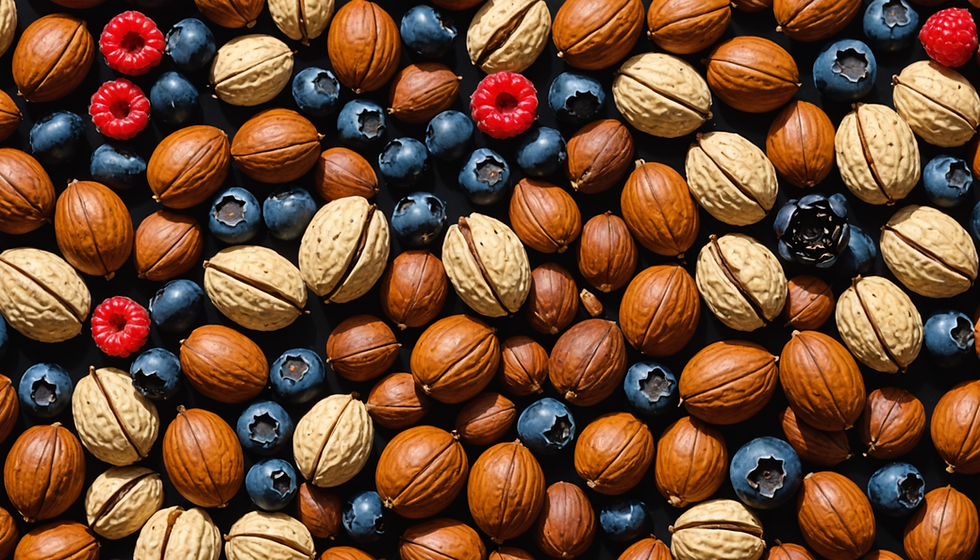The Connection Between Nutrition and Mental Health
- cbcfirmva6
- Jan 11, 2025
- 3 min read
When we think about improving our mental health, our diet may not be the first thing that comes to mind. However, growing research shows that what we eat significantly impacts our mental well-being. At Psych On Demand, we emphasize the role of nutrition in holistic mental health care. In this blog, we’ll explore how diet influences mental health and share tips on how you can nourish your mind with the right foods.

How Diet Affects Mental Health
The brain is an energy-intensive organ, using around 20% of the body’s calories. It requires a constant supply of nutrients to function optimally. Here’s how certain dietary factors can influence your mental health:
• Blood Sugar Levels: Fluctuations in blood sugar can cause mood swings, irritability, and fatigue. Eating balanced meals with complex carbohydrates, proteins, and healthy fats helps stabilize these levels.
• Nutrient Deficiencies: Deficiencies in essential vitamins and minerals, such as B vitamins, iron, magnesium, and omega-3 fatty acids, are linked to mental health disorders, including depression and anxiety.
• Gut-Brain Connection: The gut and brain communicate closely, often referred to as the “gut-brain axis.” A healthy gut, supported by a diet rich in fiber, probiotics, and prebiotics, can improve mood and cognitive function.
• Inflammation: Diets high in processed foods and sugar can lead to inflammation, which is associated with higher risks of depression and other mental health issues.
Foods That Boost Mental Health
1. Leafy Greens: Spinach, kale, and other greens are high in folate, which can help reduce symptoms of depression.
2. Fatty Fish: Salmon, mackerel, and sardines are rich in omega-3 fatty acids, essential for brain health and reducing anxiety and depression.
3. Whole Grains: Foods like oats, quinoa, and brown rice help maintain steady blood sugar levels, providing a stable energy source for the brain.
4. Nuts and Seeds: Almonds, walnuts, flaxseeds, and chia seeds are excellent sources of healthy fats and antioxidants that support brain health.
5. Fermented Foods: Yogurt, kefir, sauerkraut, and kimchi contain probiotics that promote a healthy gut, positively affecting mood and cognition.
6. Berries: Blueberries, strawberries, and blackberries are packed with antioxidants that help protect the brain from oxidative stress.
Tips for a Mental Health-Friendly Diet
• Stay Hydrated: Dehydration can affect your mood and cognitive function. Aim to drink plenty of water throughout the day.
• Limit Processed Foods: Reduce your intake of sugary snacks, fried foods, and refined carbohydrates, which can contribute to inflammation and mood swings.
• Eat Regular Meals: Skipping meals can lead to low blood sugar, resulting in irritability and fatigue. Eating regular, balanced meals helps maintain energy levels and mood.
• Consider Supplements: If you have specific dietary restrictions or deficiencies, supplements like omega-3s, B vitamins, or probiotics can support mental health. Consult with a healthcare professional before starting any new supplements.
Nourish Your Mind, Nourish Your Life
At Psych On Demand, we integrate nutritional counseling into our holistic mental health care to help you make informed dietary choices that support your mental well-being. Remember, small changes in your diet can lead to significant improvements in your mental health.
If you’re interested in learning more about how nutrition can enhance your mental health or need personalized guidance, reach out to us. We’re here to help you every step of the way.



Comments